2024 CU ASPIRE Program Awardees
The School of Medicine’s Program to Advance Physician Scientists and Translational Research is pleased to announce its 2024 CU ASPIRE Program awardees. This year’s awards have been made to four teams led by Drs. Heide Ford, Abigail Person, Mario Santiago, and Daniel Tollin. These teams include faculty from nine departments across the School of Medicine, as well as the Skaggs School of Pharmacy and Pharmaceutical Sciences, and other institutions outside of the University of Colorado.
The CU ASPIRE Program is designed to facilitate collaborative research groups working on unmet needs in basic science or clinical medicine that can only be addressed by a team of investigators through programmatic research. The Program supports milestone-driven collaborations between investigators across campus with the goal of submitting a program project (P01 or similar) or other large multi-project grant proposal to federal funding agencies upon completion of the internal award. This year’s awards brings the total of ASPIRE funded teams to twelve. Previously funded teams have been led by Drs. Fernando Holguin, York Miller, Ram Nagaraj, Beth Tamburini, Brianne Bettcher, Craig Jordan, Traci Lyons, and Carmen (Kika) Sucharov.
The CU ASPIRE Program is led by David Schwartz, MD, Director of the School of Medicine Program to Advance Physician Scientists and Translational Research and Lori Sussel, PhD, Vice Chancellor for Basic Research, along with Laura Buccini, DrPH, Senior Director of the Vice Chancellor’s Office of Research Development and Strategy, and Jennifer Kemp, PhD, Associate Director of the SOM’s Program to Advance Physician Scientists and Translational Research. This group provides ongoing advice and guidance to each of the ASPIRE-supported research groups in their quest for programmatic research support. This year’s ASPIRE funding has been provided by the School of Medicine, the Office of the Vice Chancellor for Research, and Cancer Center.
In the fall of 2024, the Program will release a call for applications for 2025 funding. The Program is open to teams from all Schools/Colleges across the Anschutz Medical Campus.
Transcriptional and mRNA Translational Control in the Adaptation of Breast Cancer Cells to Microenvironmental Stressors during Metastasis
Virtually all breast cancer associated deaths occur due to metastasis. During this multi-step process, the surviving cancer cells must rapidly adapt to many stressors, including hypoxia, inflammation, immune surveillance, chemotherapy, and viral infection. Many studies have shown that genetic alterations do not play a dominant role in metastasis. Instead, epigenetic/transcriptional changes have emerged as key means by which tumor cells rapidly respond to stressors as they metastasize. A less studied means for tumor cell adaptation is mRNA translation. In this program project grant we explore how stress-induced mRNA translation regulates the ability of tumor cells to adapt to various microenvironmental stressors. Our P01 leverages three different projects, with three unique stressors, to test the overarching hypothesis that specialized mRNA translation in response to microenvironmental stressors drives cancer cell adaptation and survival, resulting in metastasis. Identifying novel, shared mechanisms of tumor cell adaptation in response to different stressors may enable us to uncover specific means to target breast cancer metastasis..jpg?sfvrsn=c158d0bb_0)
Heide Ford, PhD
Dr. Ford is a professor and chair of the Department of Pharmacology and serves as the associate director for Basic Research in the University of Colorado Cancer Center. Her lab studies the role of developmental regulators in metastasis, with an emphasis on tumor cell plasticity as a means of tumor progression.
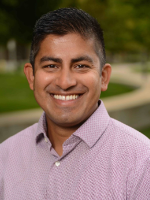
Neelanjan Mukherjee, PhD
Dr. Mukherjee is an assistant professor in the Department of Biochemistry and Molecular Genetics. His lab strives to understand RNA regulatory network dynamics and their dysregulation in diseases such as cancer, diabetes, and hypertension using cutting-edge RNA technologies.
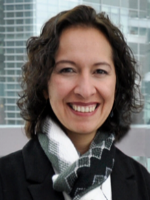
Diana Cittelly, PhD
Dr. Cittelly is an associate professor in the Department of Pathology. Her laboratory studies how cancer cells interact with specialized cells within the brain microenvironment (astrocytes, microglia, and neurons) during brain metastatic progression and in response to therapy.
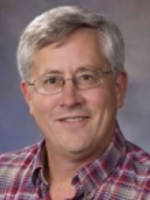
Michael Lewis, PhD
Dr. Lewis is a professor in the Department of Molecular and Cellular Biology at Baylor College of Medicine. His lab studies normal mammary gland development and breast cancer using mouse models and human xenografts.
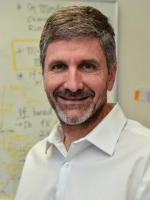
James DeGregori, PhD
Dr. DeGregori is a professor in the Department of Biochemistry and Molecular Genetics and deputy director of the University of Colorado Cancer Center. His lab studies the evolution of cancer, with a focus on how aging, smoking, Down Syndrome, and other insults influence cancer initiation, progression, and responses to therapy.
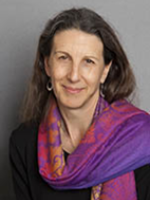
Mercedes Rincon, PhD
Dr. Rincon is a professor in the Department of Immunology and Microbiology. She has 164 publications (including Science, Immunity, Nature Communications). She has expertise on 1) IL-6 in asthma, arthritis and influenza virus infection, 2) cancer chemoresistance, 3) MCJ in mitochondrial metabolism. She is a member in MCTB NIH panel.
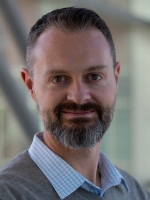
James Costello, PhD
Dr. Costello is an associate professor in the Department of Pharmacology and co-directs the Biostatistics and Bioinformatics Shared Resource through the University of Colorado Cancer Center. He brings expertise in computational modeling and bioinformatics analysis to the team.
Neural Mechanisms of Time Estimation
Dr. Person’s team plans a multidisciplinary collaborative project aimed at synergizing research across basic and clinical sciences. We aim to solve fundamental basic science questions about how the brain predicts future events to adaptively structure behavior. Insights from these studies will be leveraged to prototype a neurocomputational prosthetic for motor disorders. This program project synergizes the unique expertise – methodological and intellectual – of multiple investigators, whose independent research programs specialize in distinct aspects of cerebellar neurophysiology. Outcomes will culminate in mechanistic understanding of how neural circuits compute predictive computations usable to guide neurosurgical treatments. Next generation therapies for neurological diseases and stroke will utilize basic insights into the computations built by neural circuits. This project directly strives at this goal to identify how specific computations are built by the cerebellum and attempt to replace them in a disease model of ataxia.
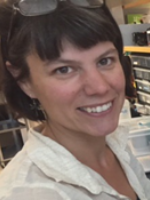
Abigail Person PhD
Dr. Person is a professor in the Department of Physiology and Biophysics. She received her PhD from the University of Washington in 2006 and started her independent laboratory at CU Anschutz in 2012. Her work focuses on cerebellar refinement of movement, and uses a multidisciplinary approach spanning electrophysiology, modeling, and quantitative behavior.
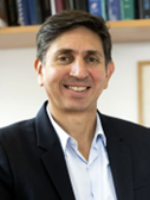
David DiGregorio, PhD
David DiGregorio is a neuroscientist who leads a laboratory that delves into how the neuronal elements within brain circuits represent “time.” Through pioneering approaches utilizing advanced electrical and optical recording techniques, his team meticulously observes synaptic and neuronal dynamics within these circuits. Their work involves rigorous testing of hypotheses generated from sophisticated artificial neural network simulations.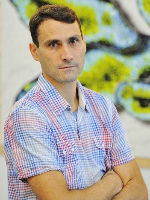
Jason Christie, PhD
Dr. Christie is a professor in the Department of Physiology and Biophysics. He received his PhD in Neuroscience from the Oregon Health & Science University in 2004. From 2010 to 2021, he led a research group at the Max Planck Florida Institute for Neuroscience, focusing on cerebellar circuit organization and learning. He then joined the Department of Physiology at CU Anschutz, where he is currently a Professor.
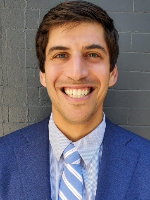
Daniel Kramer, MD
Dr. Kramer is an assistant professor in the Department of Neurosurgery. He is a Stereotactic and Functional neurosurgeon and neuroscientist who primarily treats patients with Movement Disorders, Epilepsy, and Pain. His research utilizes brain signals from human patients obtained alongside surgical interventions to study the functional role the thalamus and basal ganglia as they relate to movement, and from other cortical brain areas to study the neural execution of executive function.
HIV-1 Persistence in the Gastrointestinal Tract
An HIV-1 cure is a global health priority but remains elusive as persistent virus readily rebounds following interruption of antiretroviral therapy (ART). Data from our collaborative studies suggest that the gut may be a critical site harboring the HIV-1 reservoir. In contrast to peripheral blood and lymph nodes that are the focus of most HIV-1 latency studies, the gut is an important driver of chronic inflammation that does not resolve with ART. Specifically, gut barrier dysfunction results in bacterial translocation that triggers rampant immune activation. We assembled a highly interactive team to address the virological, immunological, and pharmacological attributes of HIV-1 persistence in the gut in the context of inflammation. Specifically, we will determine the contribution of cytotoxic CD4 T cells as a reservoir, the role of antiviral interferons in shaping HIV-1 persistence, and the role of inflammation in drug bioavailability in the era of long-acting injectables. These questions will be explored in the setting of obesity, a common comorbid condition associated with gut barrier dysfunction. As the gut contains vast numbers of CD4 T cells in the human body, addressing key questions on the nature of HIV-1 persistence in this compartment could advance novel HIV-1 cure strategies.
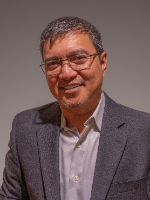
Mario L. Santiago, PhD
Dr. Santiago is an associate professor in the Division of Infectious Diseases in the Department of Medicine. He is a molecular virologist studying the interplay between the innate and adaptive immune response against the pandemic viruses HIV-1 and SARS-CoV-2. A major focus is the biology of HIV-1 in gut lymphocytes and the role of diverse interferon subtypes in driving viral evolution.
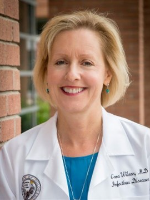
Cara C. Wilson, MD
Dr. Wilson is a professor in the Division of Infectious Diseases in the Department of Medicine, and Director of the Medical Scientists Training Program (MSTP). Dr. Wilson is a physician-scientist studying the mucosal immunology of HIV-1, particularly the role of gut lymphocytes and the microbiota in driving inflammation and comorbidities in persons with HIV-1 (PWH). Dr. Wilson has extensive experience in designing and implementing clinical trials, in particular human studies of HIV- and aging-associated immune activation.

Peter Anderson, PharmD
Dr. Anderson is a professor in the Skaggs School of Pharmacy and Pharmaceutical Sciences. His work focuses on understanding antiviral drug disposition in vivo to optimize drug therapies. His team developed validated tools to detect intracellular levels of antiretroviral drugs in humans that have been applied to various large-scale clinical trials that provided key insights for HIV-1 pre-exposure prophylaxis.
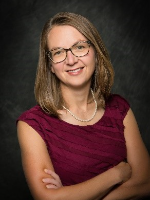
Kristine M. Erlandson, MD
Dr. Erlandson is an associate professor in the Division of Infectious Diseases in the Department of Medicine. Dr. Erlandson is a leading expert on aging and co-morbidities in HIV-1 infection. She is currently the Vice Chair of the ACTG Comorbidities Transformative Science Committee, which completed, among others, a multi-site clinical trial on the impact of injectable semaglutide for hepatic steatosis among people with HIV-1.
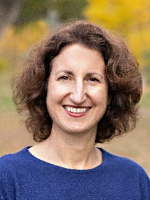
Katerina M. Kechris, PhD
Dr. Kechris is a professor in the Department of Biostatistics and Informatics, associate director for Data Science in the Center for Innovative Design and Analysis, and director of the Computational Bioscience Program, with extensive expertise in the development and application of statistical methods to analyze high-dimensional genomic data and integrating diverse omics datasets in clinical/translational studies.
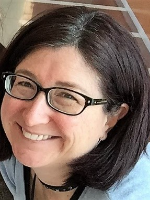
Stephanie M. Dillon, PhD
Dr. Dillon is an associate research professor in the Division of Infectious Diseases in the Department of Medicine. She is an immunologist and translational researcher with a strong interest in microbiota-host immune cell interactions in the setting of HIV-1 and physiological aging. Her overall goal is to translate her research findings into targeted therapies that improve the health and life span of people living with HIV.
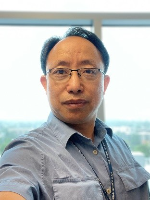
Kejun Guo, PhD
Dr. Guo is an assistant research professor in the Division of Infectious Diseases in the Department of Medicine. He is a molecular virologist specializing on HIV-1 and SARS-CoV-2, who has extensive experience in next-generation sequencing technologies as applied to virus molecular evolution and the diversity of the antibody repertoire and interferon responses.
Synaptopathy as a common etiology underlying hearing and balance disorders with aging
The inner ear contains the cochlea and vestibular system which enable hearing and balance sensation, respectively. Age-related decline in hearing function is highly prevalent, affecting > 30-50% of people over 60. Balance function also declines with age and falls are the leading cause of death and injury in adults over 65. Recent work suggests a connection between noise-induced hearing loss and vestibular dysfunction. Specifically, even mild hearing loss more than triples falling risk, and risk compounds with increased age. Understanding cellular mechanisms and commonalities between the cochlea and vestibular system is crucial to drive inner ear therapies for alleviating hearing and vestibular dysfunction. Mechanisms underlying dysfunction are unclear but likely include loss of synapses between sensory hair cells and their afferent terminals, called synaptopathy, in addition to CNS changes. We will investigate whether “endotypes” of auditory and vestibular loss co-occur in aged gerbils characterized by peripheral and/or central dysfunction. In humans we will test whether auditory and vestibular physiologic tests suggest endotypes of peripheral and/or central loss in older adults. Additionally, we will examine common harmful environmental exposures such as noise and ototoxic medications, and investigate the extent to which aging resembles the patterns of dysfunction that result from these exposures.
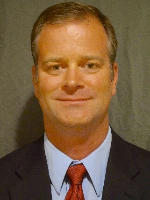
Daniel J. Tollin, PhD
Dr. Tollin is a professor in the Department of Physiology and Biophysics. His lab explores how auditory function is altered by pathologies, including early temporary hearing loss (ear infections), acoustic blast, Fragile X, aging, Alzheimer’s disease, and noise-induced hearing loss. His lab uses electrophysiological and behavioral methods in both human and animal subjects. His research has demonstrated that the auditory dysfunction exhibited in these pathologies has its origin in the auditory brainstem, as opposed to the prevailing dogma that these issues are based in the auditory cortex.
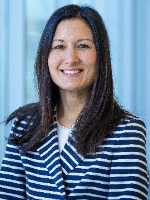
Yuri Agrawal, MD, MPH, FACS
Dr. Agrawal is professor and chair of the Department of Otolaryngology-Head and Neck Surgery at the University of Colorado. Her clinical practice is focused on the medical and surgical treatment of otologic and neurotologic conditions. Dr. Agrawal’s research is focused on the vestibular system, and how the vestibular system changes with aging notably with respect to cognitive function and fall risk in older adults.

Katie Rennie, PhD
Dr. Rennie is an associate professor and resident research director in the Department of Otolaryngology - Head & Neck Surgery. Her lab studies how signals for balance function are processed by hair cells in the vestibular organs of the inner ear. Here, specialized type I and type II hair cells convert head position and motion into electrical signals that travel to the brain via distinct pathways. The expression of different ion channels in vestibular cell types leads to key differences in functional properties. A clearer understanding of signaling mechanisms will inform development of pharmaceutical and electrical strategies to combat vestibular dysfunction.

Achim Klug, PhD
Dr. Klug is a professor in the Department of Physiology and Biophysics. His lab studies neural circuits in the auditory brainstem that mediate sound source localization with techniques that include in-vivo physiology, slice physiology and patch clamp, auditory brain stem recordings, optogenetics, histological analysis and modelling. He has demonstrated that components of this circuit are designed for extremely well-timed action potential propagation – a requirement for precise sound localization – and that these circuits are disrupted in pathologies including Fragile X, aging, and noise-induced hearing loss.
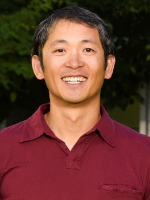
Anthony Peng, PhD
Dr. Peng is an associate professor in the Department of Physiology and Biophysics. his lab studies how hair cells convert mechanical stimuli into electrical signals in both cochlear and vestibular hair cells. Using high-speed imaging (10k frames per second), mechanical stimulation, and patch-clamp electrophysiology, the lab is able to characterize the mechanical and electrical properties of the mechano-electrical transduction process. The lab has made major discoveries about the mechanisms of mechanotransduction and has challenged the prevailing central hypotheses of hair cell mechanotransduction.